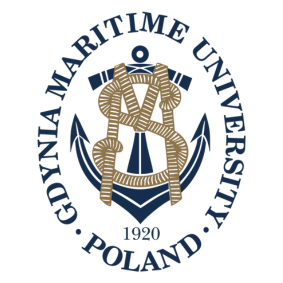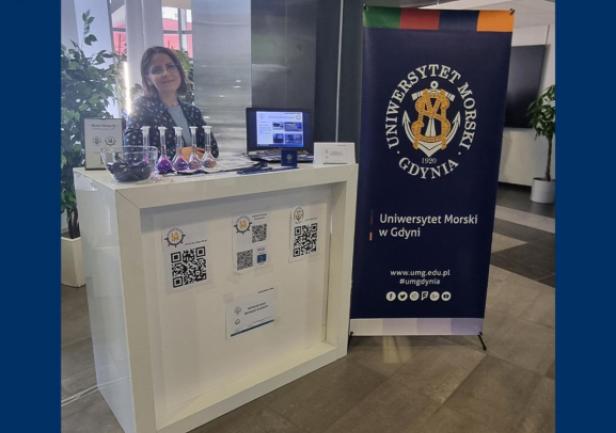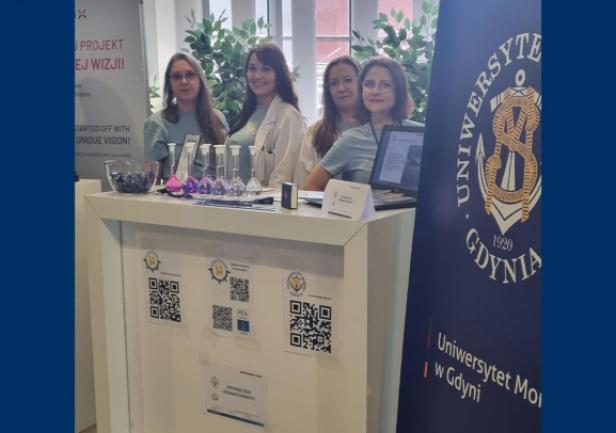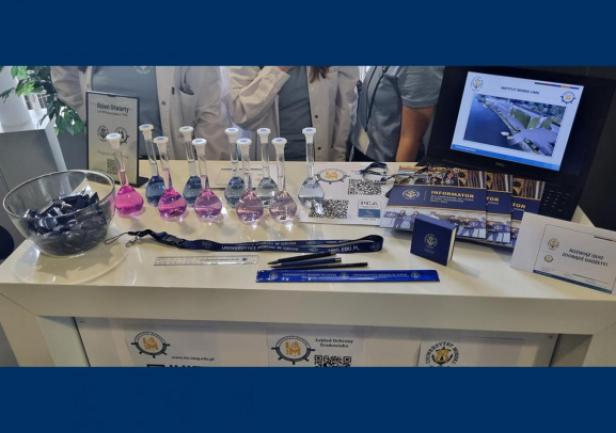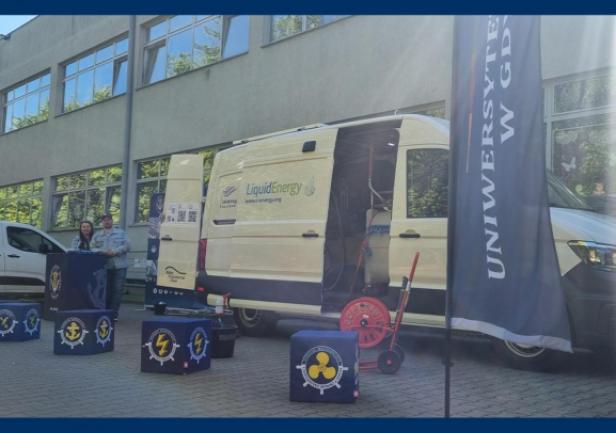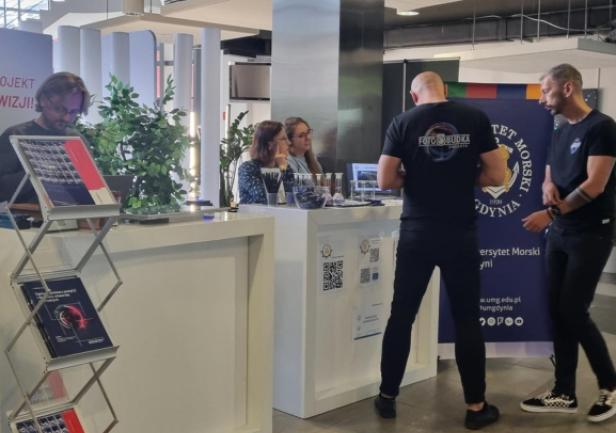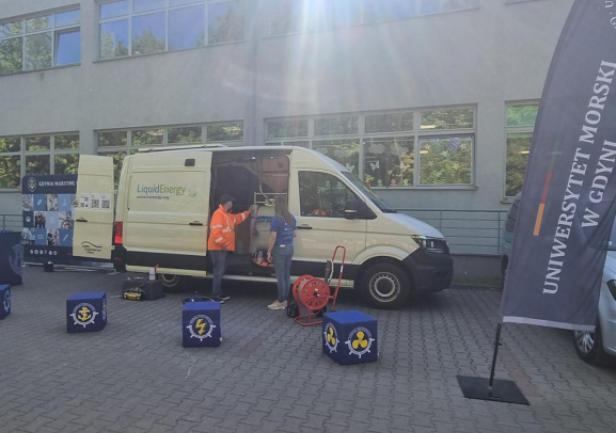GMU Maritime Institute Attends Pomeranian Special Economic Zone Open Days
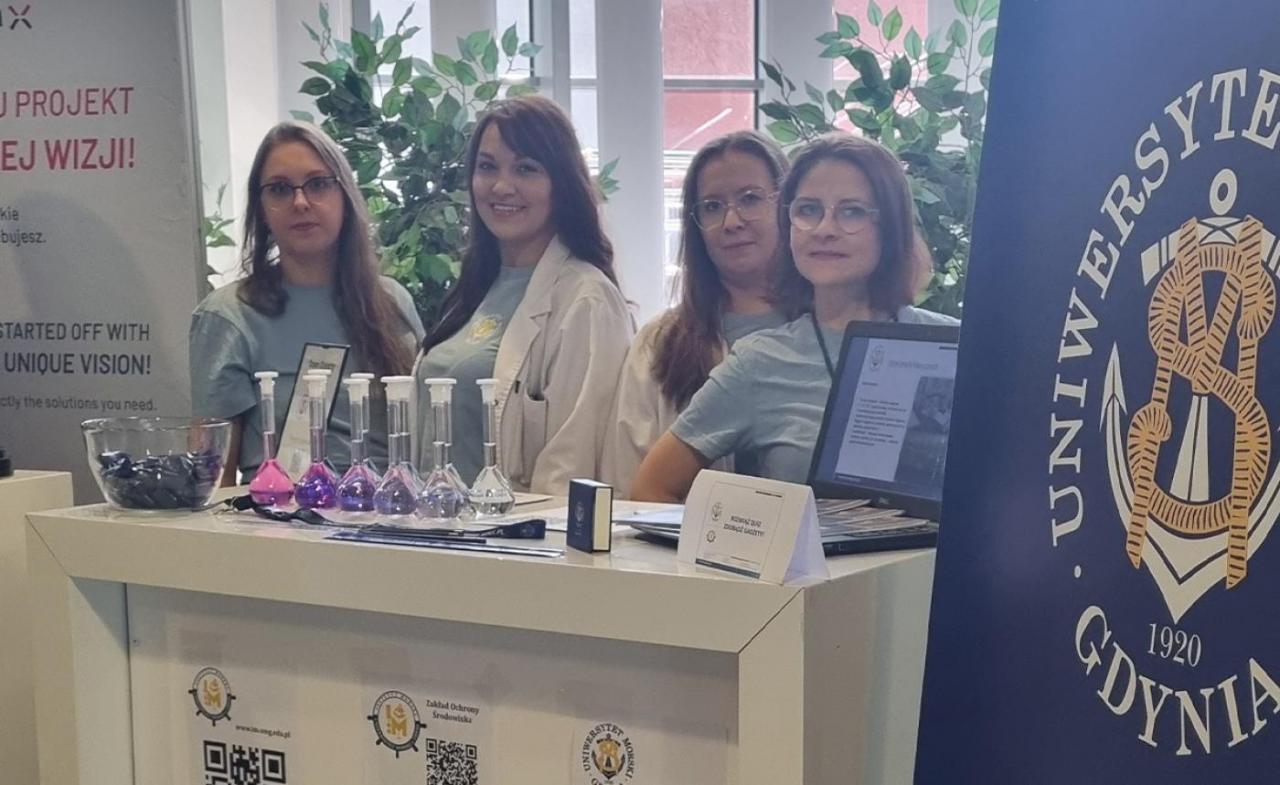
On 8 May, staff from the Environmental Protection Department laboratory of the GMU Maritime Institute, based in building A of the Gdańsk Science and Technology Park, took part in the Pomeranian Special Economic Zone Open Days.
At the GMU stand, visitors could get information on the degrees and courses offered at the University and find out about the activity of the Environmental Protection Department which is involved in physicochemical research in various environmental matrices, including marine, surface and underground water, water for human consumption, as well as sewage, sediment, soil, and land.
The Department has at its disposal laboratories, which have implemented a Laboratory Management System compliant with PN EN ISO/IEC 17025 and since 1 September 2005 have been a certified accreditation centre in Poland, no AB 646, thus confirming its fulfilment of the above norm. The Maritime Institute’s Environmental Protection Department laboratory also regularly offers new competitive and innovative research methods. As part of its activities, the laboratory shall also provide accredited sampling in the mentioned matrices and assist in the selection of appropriate test methods for different types of pollutants. During the Open Days of the Pomeranian Special Economic Zone, visitors were able to familiarise themselves with sampling apparatus for subterranean, river, waste, soil and sediment waters.
In front of the main entrance to building C, a pilot project was also presented for a Mobile LNG Fuelling Station, part of the Liquid Energy Project ((Liquefied (bio-)gas as a driving force for the development and use of green energy technology) carried out under the Interreg South Baltic Programme 2014 2020. The prototype of the Mobile Fuelling Station was designed in a standard transport vehicle for the following purposes:
• transport of mobile LNG containers,
• provide fuel to lorries and other vehicles with LNG combustion engines.
• unload and store gas from cistern lorries in the event of an accident or to prepare them for repair.
